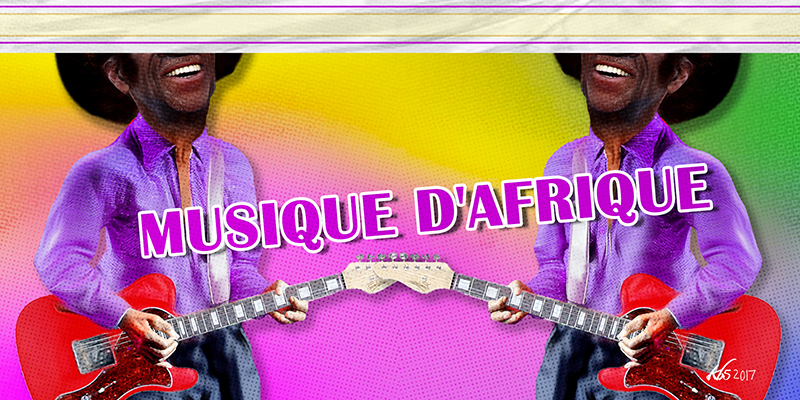Unveiling the History of Kenyan Benga Music
Core Concepts
Benga music in Kenya embodies a rich cultural heritage that transcends borders and social classes, reflecting the country's musical identity through decades of evolution.
Abstract
Shades of Benga delves into the roots and evolution of Kenyan Benga music, tracing its origins among Luo communities to its influence on Zimbabwean music. Tabu Osusa's work highlights the pivotal role of Benga in shaping Kenya's musical landscape and social history. The book showcases how Benga artists like D.O. Misiani and George Ramogi contributed to the liberation spirit during Rhodesia's Bush War, emphasizing the genre's significance in African music history. Despite facing challenges like lack of mainstream recognition, Benga remains a symbol of cultural expression for diverse African communities.
Translate Source
To Another Language
Generate MindMap
from source content
Visit Source
www.theelephant.info
Tracing the Roots of Benga - The Elephant
Stats
"more than 40 years later"
"late 1960s through to the late 1970s"
"63"
"over a decade"
"1946-2016"
"70-year musical journey"
"mid-1940s"
"350 shows by the end of the war in 1945"
"1965"
"1968"
"70s and 80s"
Quotes
"You cannot sing African music in proper English." – Fela Kuti
"We have to make ethnic cool again" - Tabu Osusa
"When you listen to West African or Congolese music, you know where it is from. Where is the Kenyan sound?" - Tabu Osusa
Deeper Inquiries
How has globalization impacted traditional music genres like Benga?
Globalization has had a significant impact on traditional music genres like Benga. With the spread of Western and international music styles, local genres have faced challenges in maintaining their relevance and popularity. The influx of foreign musical influences, such as funk, disco, and soul, led to a shift in preferences among audiences towards more globalized sounds. This resulted in traditional genres like Benga being marginalized and associated with rural or lower-class identities.
Additionally, technological advancements brought about by globalization, such as the rise of cassette players over turntables and records, further contributed to the decline of traditional music scenes. The availability of foreign music through video cassette recordings also played a role in diverting attention away from local genres.
Despite these challenges, globalization also provided opportunities for traditional music to reach new audiences beyond local borders. Through initiatives like Oluoch Kanindo's efforts to introduce Benga music to Southern Africa under his AIT Records label, local musicians were able to gain recognition internationally. However, this exposure came with risks as well since it could lead to dilution or distortion of the original cultural elements that defined the genre.
Is there a risk of losing cultural identity when local music scenes imitate international styles?
There is indeed a risk of losing cultural identity when local music scenes imitate international styles without preserving their unique heritage. When musicians prioritize mimicking global trends over showcasing their own traditions and roots, they run the danger of erasing what makes their culture distinct.
Imitating international styles can result in homogenization within the global music industry where diverse voices are overshadowed by dominant Western narratives. This not only diminishes cultural diversity but also perpetuates stereotypes about what constitutes "good" or "popular" music.
Furthermore, by neglecting indigenous musical practices in favor of imitation, artists may inadvertently contribute to the loss of intangible cultural heritage that is passed down through generations within communities. It is essential for musicians to strike a balance between incorporating modern influences while staying true to their cultural origins to prevent homogenization and preserve authenticity.
How can modern musicians balance innovation with preserving their cultural roots?
Modern musicians face the challenge of balancing innovation with preserving their cultural roots in an increasingly globalized world. To maintain authenticity while exploring new creative avenues:
Study Cultural Heritage: Musicians should delve deep into their own cultural heritage by studying traditional instruments, rhythms, melodies,and storytelling techniques that define their musical identity.
Collaborate Across Genres: By collaborating with artists from different backgrounds or blending various musical styles creatively (like Fundi Konde infusing Afro-Cuban elements into his work), modern musicians can innovate while honoring tradition.
Document Cultural Practices: Recording oral histories,preserving indigenous languages,and documenting rituals associated with specific musical traditions helps ensure that valuable aspects are not lost over time.
4 .Engage Communities: Modern musicians should engage directly with communities where these traditions originate,to learn firsthand from elders,master performers,and custodians who hold invaluable knowledge about ancestral practices.
5 .Educate Audiences: Through performances,interviews,discussions,and workshops,musicians can educate audiences about the significanceof preservingculturalrootsandencourageappreciationforlocalmusictraditions.
By striking this delicate balance between innovationandpreservationofculturalroots,
modernmusicianscancreateuniqueandsignificantworksthatreflecttheirheritagewhileembracingtheevolutionofthemusicindustryinatimelymanner

